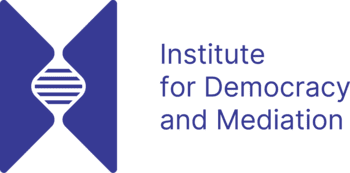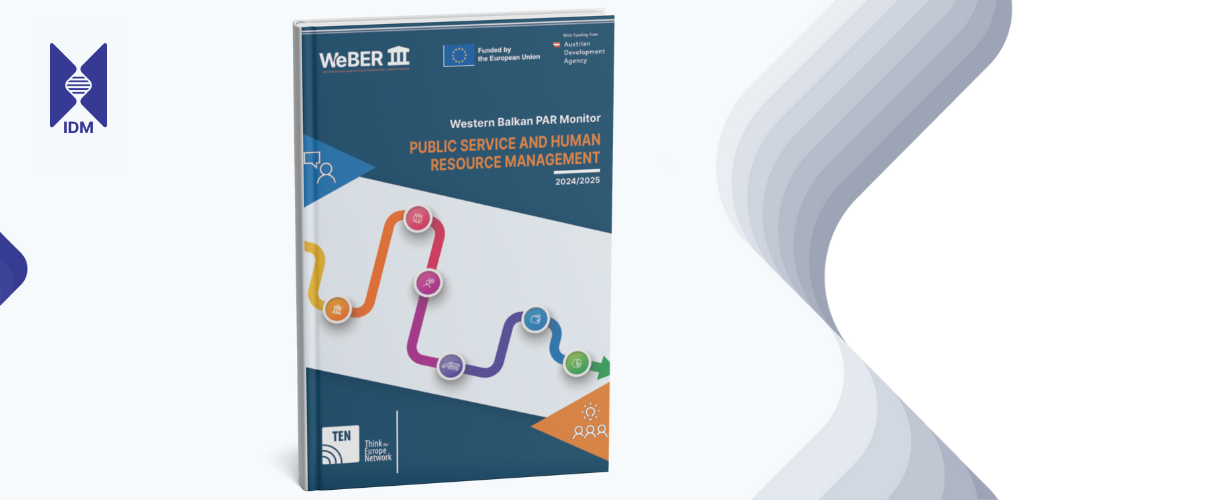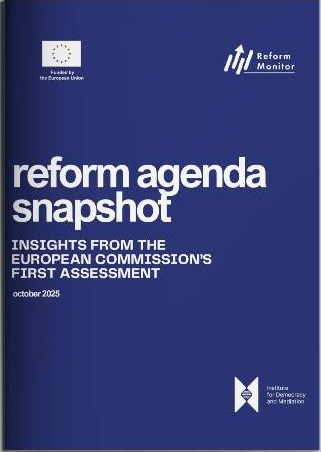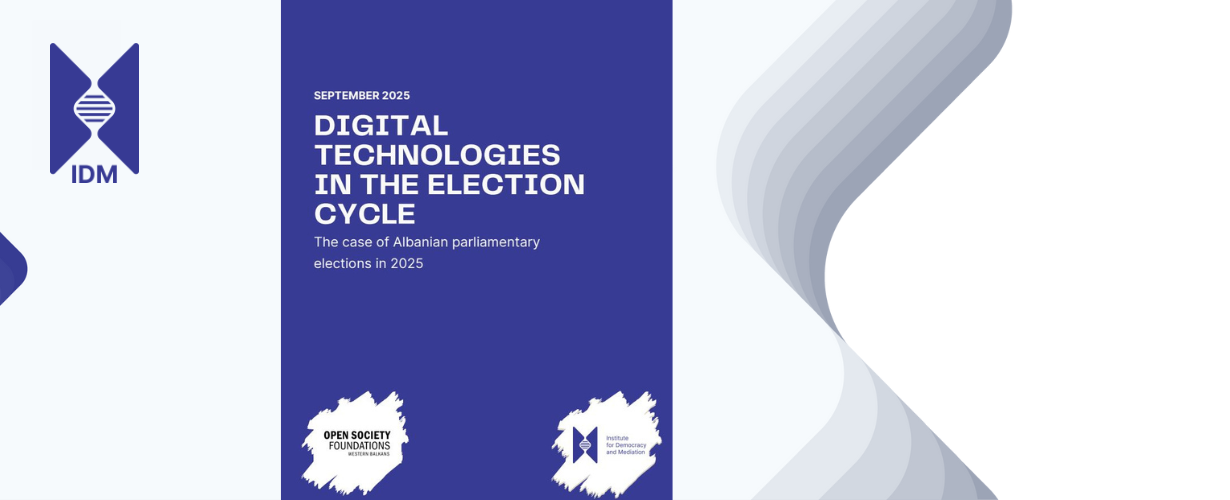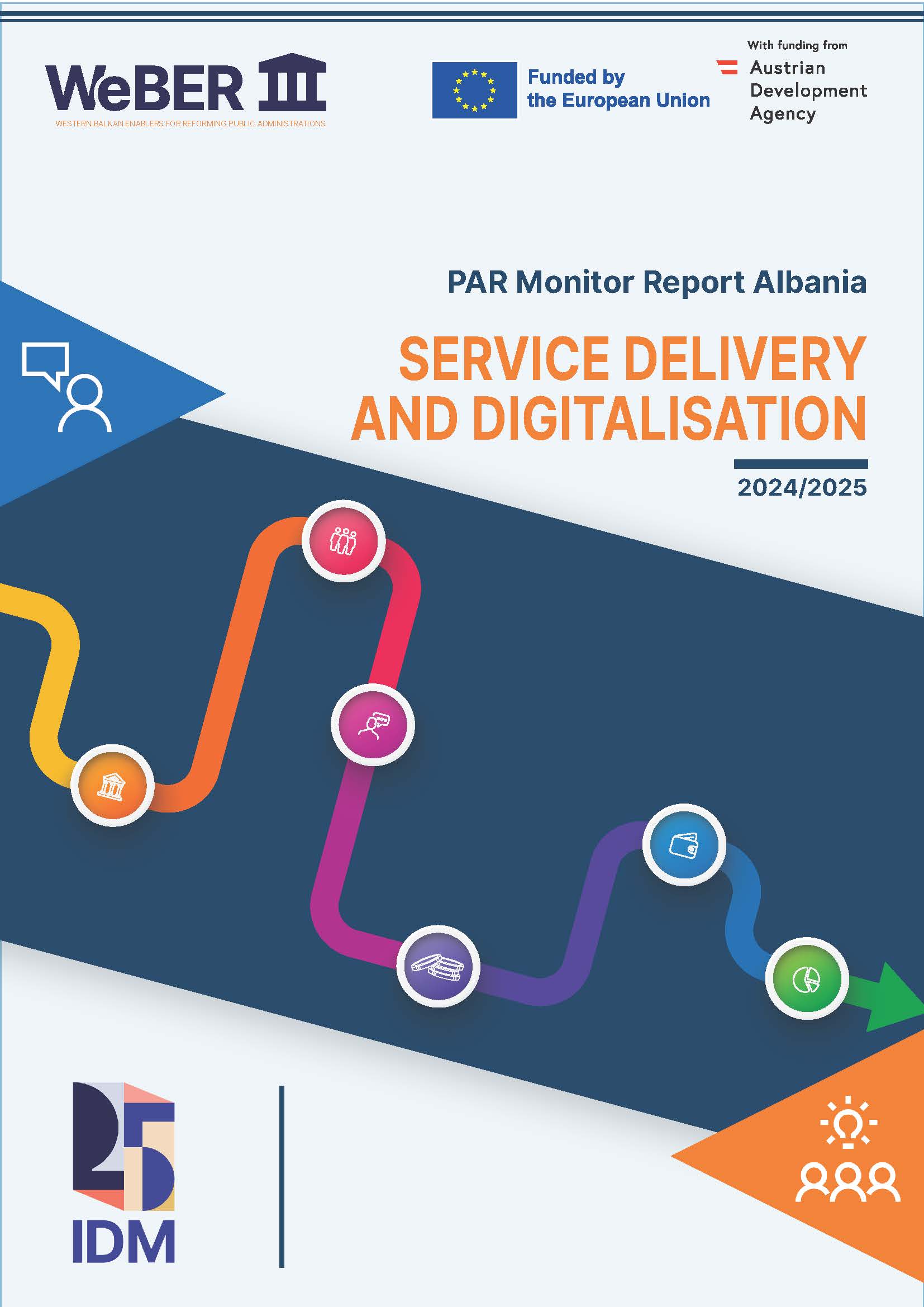A renewed strategy for think tank development
Gjergji VURMO
Over 15 years ago, organizations like the European Fund for the Balkans, the OSI Think Tank Fund, National Endowment for Democracy, and others launched several programs to support emerging think tanks in the Western Balkans. Perhaps one of the most impactful and engaging initiatives was the series of Western Balkan peer exchange workshops with think tanks and policy institutes. The gatherings started as “a space for peer-to-peer exchange of practices, positive and negative lessons learned, and brainstorming on new innovative ideas“. But, for many of us, think tank managers and researchers, these events felt like retreat where we’d turn for advice and new ideas.
At the time, many donors had the vision to nurture the so-called “second generation think tanks” to help countries in the region design and implement transformative reforms grounded in strong local ownership and evidence-based approaches. It was a time when there still was appetite for reforms and the brain drain had not hit as hard as today the talent pool that defines the quality of think tanks and other policy actors. For some of us, this was the period when our countries were last labelled as “semi-consolidated democracies” before rolling back to “hybrid regimes” where they remain today.
The region at that time offered a fertile ground for building a new generation think tanks, but little clarity or knowhow on how to reach there. Yet, during the peer exchange workshops we soon realized that we all had in common the same struggles. Eventually, sharing what kept us awake at night was not only a relief, but also a good start to design solutions, offer support, and even mentor each other.
Fast forward a decade later, WB think tank sector has made great strides to position itself as a resourceful policy stakeholder. Many think tanks and policy institutes in the region not only contribute to internal reforms and regional cooperation, but they also influence processes at EU level and inform prominent international reports and actors. And yet, many of us often feel the need to resume that peer exchange practice that once guided our organizational development pathways together with other mentoring resources such as EFB’s Think and Link program, theoretical and practical tools made available by On Think Tanks, DGAP’s TRAIN Fellowship and so on. Resuming and reinvigorating the focus on WB think tank development and resources that make that possible is particularly important for a number of reasons.
With half of WB countries already NATO members, the region is currently at a critical juncture regarding its EU accession. While EU membership perspective is still valid for the entire region, some of the most advanced countries are offered a clear timeline to join the EU by 2030. This sets the stage for a decade that will require, in principle, wide-ranging, multifaceted, and rapid reforms to prepare countries for EU membership.
Secondly, unlike a decade or two ago when appetite for reforms was strong and EU was the only plan, the region today paints a complex picture. Namely, while almost all countries suffer the democratic decline, some of them hint at Plan B or C, while others revive populist rhetoric or nationalist agendas from the past. Hence, the need for resonant capacities to bring data and evidence in a WB public and policy discourse which is increasingly resorting to populism and post truth “philosophy”.
Thirdly, today’s shrinking civic space in the region may indeed appear less violent than the 1990s but the damage on democracy is arguably more severe. Three decades ago, citizens’ quest for democracy toppled the region’s dictatorships. Today, the hybrid regimes in the Western Balkans are suffocating democracy’s foundation – its people – through pretend participation, laws that look good on paper but are ignored in practice, and shiny institutions that fail to earn public trust.
Putting think tanks in this picture, it makes sense why think tankers and activists bring up concerns over independence, integrity, influence or even relevance of policy research and evidence-based policy making. But these are not the only challenges of WB think tanks which also include – lack of tailored support for policy research work, access to and integrity of government held data, unresponsive institutions, underperforming academia, brain drain etc. Such harsh reality makes it even more difficult for think tanks in the region to catch up with EU peers while fighting hybrid regimes and shrinking civic space at home. Difficult, but not impossible.
As the Western Balkan countries move toward EU accession, the need for expert advice, foresight research, reliable data, and policy evidence is more critical than ever. Equally important are trustworthy, dynamic, and high-integrity think tanks to deliver these insights. The quality of policy inputs and processes that ensure their efficiency and effectiveness are essential for the sustainability and public support of economic, social and political reforms. Hence, the presence of resourceful policy knowledge centers, think tanks, and academia is of paramount importance for the region’s economic development and democratic consolidation.
Think tanks and policy institutes can pave the way for this agenda by partnering with academia, the rich array of civil society groups and forms of actions, media actors, interest groups and other policy actors. To do so, think tanks need a broad base of enthusiasts to support such vision and are willing to take risks on initiatives that defy hybrid regimes and push think tanks to evolve and meet high performance standards.
The first edition of Tirana Think tank Forum (TTF) – organized by IDM Albania from 13 to 15 November 2024 -aims to serve precisely such vision. Its ambition is to become a meeting point for think tankers resuming the peer exchange practice of a decade ago with a much more solid and broader network of resources and partners. TTF aims to provide a venue and dynamic platform for deconstructing think tanks’ challenges, supporting and mentoring one another to overcome shared concerns, building a friendly environment for policy innovation, expanding the boundaries of current synergies and ultimately anchoring knowledge, learning, integrity and participation closer to decision-making processes.
The think tanks sector can again serve the region in this critical time to seize the opportunities of the revived EU integration agenda that it once missed, after the big bang enlargement (2004 and 2007). It is time for the region and international partners supporting our countries to take a bold step towards a prosperous and knowledge-based society.
